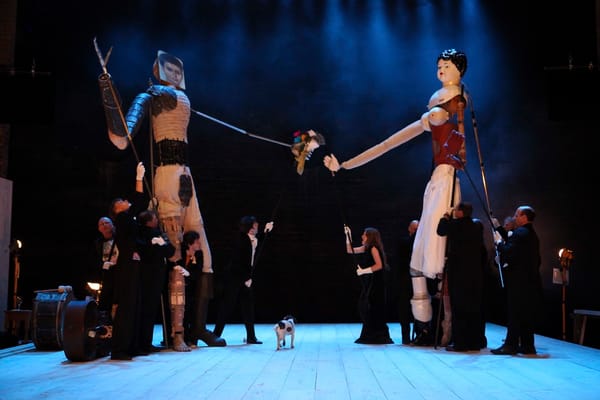Accolade – A 50’s thriller that is as relevant as ever
Clara Nevola reviews Emlyn William's play recounting the life of a Nobel laureate author

A rich, famous and respectable man has his private life dragged through the tabloids. “The Sir and the school girl!” the media cries. This all sounds very familiar; the eminent and the famous are constantly in the public eye, their lives scrutinised in every detail by scandal-hungry press. So a well written, moving, reflective and excellently performed play on this recurrent issue of our times doesn’t come a minute too soon. But hang on– I forgot to mention – Accolade was written in 1950.
Emlyn William’s startling modern and poignant play recounts the life of Will Trenting, a Nobel laureate author who lives in Regent’s Park with his wife and young son. Scenes of familial happiness, creative productivity and well to-do luxury paint a picture of a happy, successful, respectable man. And all of a sudden, just as he is about to receive a knighthood for services to literature, this idyll apparently starts to unravel. Gossip builds up on Trenting’s licentious parties in Rotherhithe, where he goes as Bill Trent, his free and easy alter ego. He gathers around him drunks, prostitutes and other disreputable East Enders for weekends to a bedroom above a pub with blacked-out windows. As his family and friends pop open the champagne and celebrate the honour, Trenting starts to see that the knighthood may change is life, restricting his freedom and requiring unprecedented respectability of him. And then events start spiralling: first tip offs from his friends from Rotherhithe, then police advice. To the shock of his publisher and his middle class friends, his books on the ‘lower depths’ are not pure works of fiction – they are inspired by the author’s first-hand experience of whores, orgies and promiscuity.
Despite Will’s increasing uneasiness about the moral restrictions he feels closing over him, it seems that his life will be unaffected. His wife has always know and always accepted his promiscuous inclinations. There’s even an unlikely merging of his worlds, as his friends from the East End frequent his Regent’s Park house, lightheartedly consoling the grave and worried members of the upper class. And then it emerges that, unwittingly, Trenting has committed a serious crime, one which, if publicly known, would irredeemably mar his reputation. But, strangely, we can’t help but sympathise with him. He’s as honest and unapologetic about his predilection for debauchery as he is totally aghast that his actions could have led to harm. He makes a clear distinction between socially imposed morality and fundamental ethics. Alexander Hanson, who plays Will Trenting, portrays this fantastically, turning his character from a symbol to a man we can all identify in, a man who can make the distinction between ‘good’ and ‘well behaved’, who struggles with the incongruity with which he lives.
In the light of recent events, such as the Leveson inquiry, this play comes across, first and foremost, about a work on the role of the media in society. But it is also a play about people struggling with his conflicting desires, about the double standards which our society imposes, and about the responsibilities which we have towards loved ones. And it’s also a moving, funny and high suspense story. What else could you want?
The cast is exceptional, under the direction of award-winning Blanche McIntyre who originally directed this revival at the Finborough Theatre a few year ago. The stage set also helps to create a believable set (Will’s study) which, thanks to the St James’ theatre very open structure, really absorbs the viewer into the action. When the actors take their bow after two and a half hours of tears, laughter and tension, it takes a while to acclimatise from a 1950 study to a 2014 theatre. Although, as Accolade shows us, things haven’t changed much after all.









